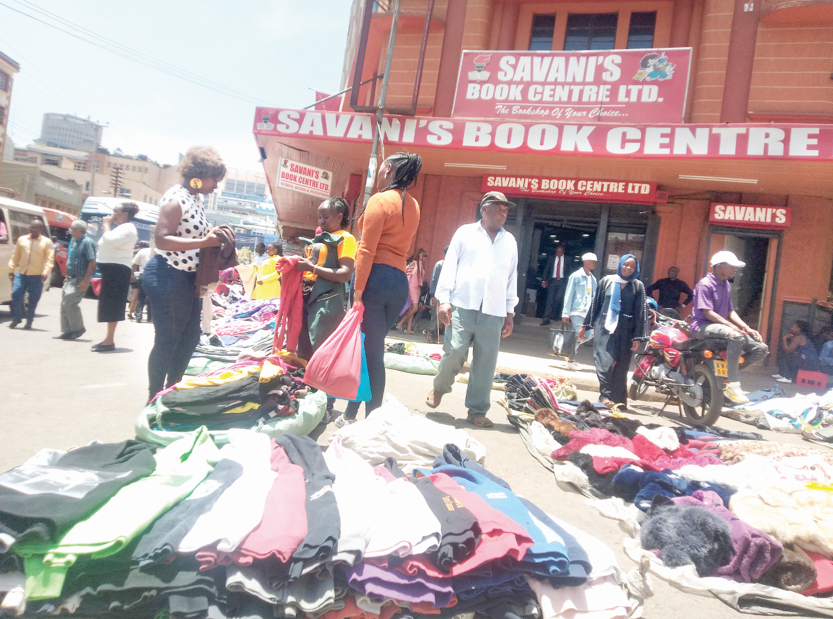Nairobi MCAs endorse new motion on moving hawkers

Nairobi Members of the County Assembly (MCAs) have passed a motion directing the county government to relocate street traders to designated backstreets and regulated pop-up markets, a move which they say will help in decongesting the nation’s capital.
The measure, which also mandates enhanced security and a streamlined licencing process, seeks to address the mounting pressure hawkers place on the city’s thoroughfares while ensuring safer, regulated spaces for trade.
The motion moved by Umoja 1 MCA Mark Mugambi, who is also the Minority Whip, tasks the county executive under Governor Johnson Sakaja to allocate designated market zones and register hawkers.
This motion builds on the Nairobi City County Pop-Up Markets and Street Vending Act of 2019, a law created to regulate hawkers in Nairobi but has yet to be fully implemented.
According to Mugambi, unregulated street vending has become a major hurdle to city mobility, adding that enforcement officers regularly exploit traders by collecting bribes and harassing them.
“We want to ensure that they operate within a regulated environment and that there can be mobility within our city,” the MCA said on Tuesday.
Under the 2019 Act, all street vendors must secure a licence from the county government. The law also calls for a database of vendors, tracking their locations, contact information and types of goods sold.
Street congestion
Furthermore, the county executive is required to clearly designate zones as Unrestricted, Restricted or Prohibited for vending. The list of approved areas must be published in at least two national newspapers.
Violating these regulations could lead to a fine of up to Sh30,000 or six months’ imprisonment.
Nairobi, which was once known as the “Green city in the sun”, has seen its streets overrun by hawkers over recent decades. Informal traders now occupy almost every corner, with some 40,000 street vendors across the city and around 5,000 operating within the CBD daily.
The city’s street congestion and litter problems have intensified and local businesses complain that hawkers obstruct their entrances and reduce foot traffic for legitimate stores.
In his early days in office, Governor Sakaja pledged not to evict hawkers outright but to organise designated spaces for their operations. In his manifesto, he outlined a plan allowing hawkers to operate within the CBD from 5 pm to 10 pm.










